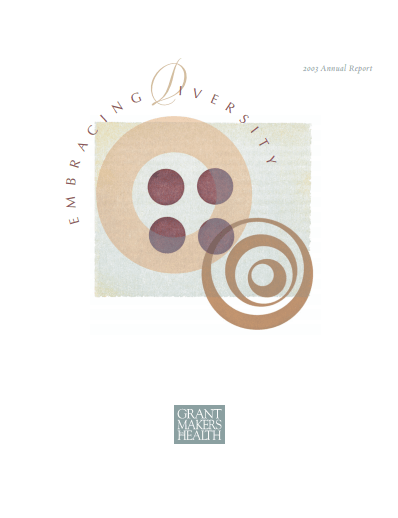The Business of Giving: Governance and Asset Management in Foundations Formed from Health Care Conversions
Since the formation of the first foundation in the wake of the conversion of nonprofit health organizations in 1973, grantmakers, regulators, and others have watched the phenomenon with interest. For nearly 10 years, GIH has been monitoring the development and operations of these foundations. An upcoming report looks at the continued growth of this sector in philanthropy and focuses on how organizations are managing investments, conduct and composition of boards, and other structural issues.
Health and Fiscal Policy
Given the amount of public expenditures devoted to health and concerns about the impact of changes in public policy on the nation’s most vulnerable residents, health grantmakers need to understand existing state and federal policies affecting revenues and expenditures and the implications of any changes on the table. They can also play an important role in the development and implementation of these policies. This portfolio, prepared for GIH’s 2004 Fall Forum, provides information and resources to help grantmakers understand the connections between health and fiscal policy.
New Choices and Hard Decisions: Helping Seniors Navigate Medicare
Educating seniors on the changes to the Medicare program will be a challenge for both the public and private sectors. Reaching the nation’s 41 million Medicare beneficiaries — 35 million of whom are over the age of 65 — will require a mix of customized, one-on-one assistance and broad education campaigns. This Issue Focus proposes that providing information and referral services for seniors and their families is an area ripe for foundation work, and outlines a number of opportunities for grantmakers.
Selling Healthy Lifestyles: Using Social Marketing to Promote Change and Prevent Disease
As a behavior change technique, social marketing has proven effective in motivating people to make the complex and difficult behavior changes that can improve health and reduce the risk of chronic diseases such as cardiovascular disease, cancer, and diabetes. This Issue Brief uses the lens of tobacco prevention and cessation, physical activity, and healthy eating to examine how health grantmakers can use social marketing principles and techniques to encourage and support the adoption of healthier behaviors across the lifespan.
Addressing Maternal Depression
Maternal depression affects not only a woman herself, but also her family, friends, and coworkers. Of particular concern is maternal depression’s link to problems in children’s health, mental health, and development. This Issue Focus highlights ways that health grantmakers can address maternal depression and its consequences, including educating women and health care providers, promoting screening and treatment, integrating mental health services into programs serving pregnant and parenting women, and supporting research.
Connecting Children to Ongoing and Coordinated Health Care
Ongoing and coordinated care for children has been linked to better health outcomes, as well as lower overall costs. This Issue Focus highlights opportunities for grantmakers that include improving access to medical homes, coordinating care for children with chronic diseases, educating providers, colocating services, and reducing emergency department use.
Putting People First
This compilation of speeches from GIH’s 2004 annual meeting includes remarks from King Davis, Harvey Fineberg, David Gould, Pedro Greer, Lauren LeRoy, Mary Story, Jerome Williams, and Margo Wootan.
Annual Report 2003
GIH’s 2003 Annual Report document’s the organization’s programmatic and financial activities.
Taking Time for Board Engagement Strategies
This GIH Issue Focus examines various board engagement strategies.

